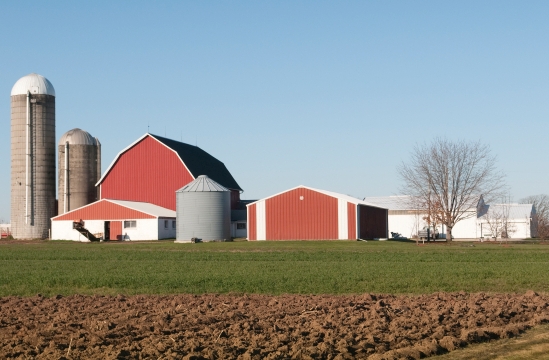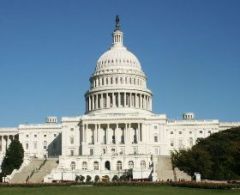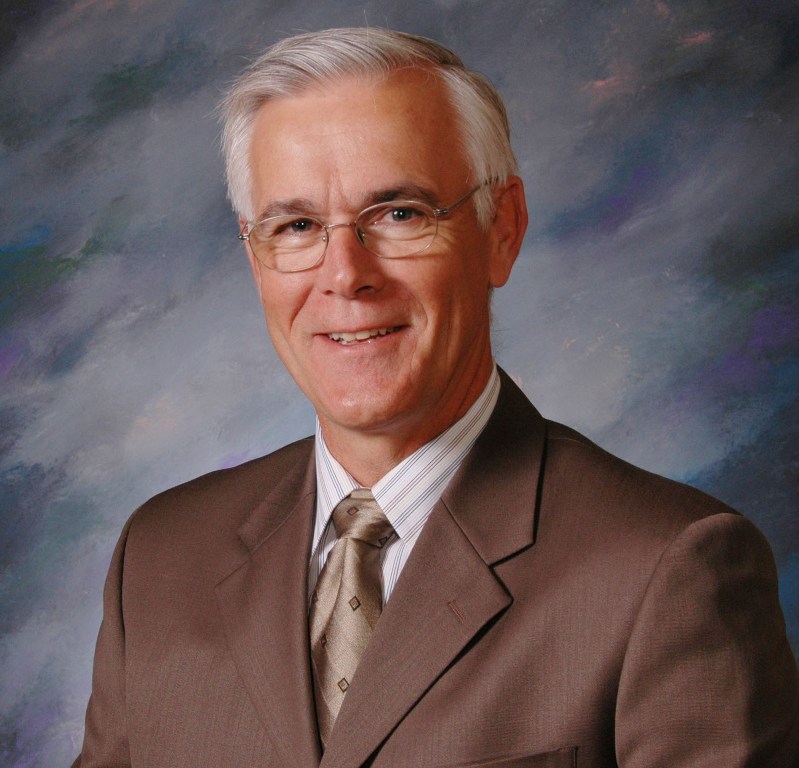 New Version Would Give Farmers Choice of Opting for Government Safety Net
New Version Would Give Farmers Choice of Opting for Government Safety Net
ARLINGTON, VA – The National Milk Producers Federation’s Board of Directors voted today in favor of a revised approach to reforming federal dairy policy, with the key change of allowing farmers an individual choice between receiving the financial protection of a government safety net, or opting out of such protection.
As originally proposed back in 2010, NMPF’s Foundation for the Future (FFTF) program contained a government-subsidized safety net, the Dairy Producer Margin Protection Program, to protect against periods of low milk prices, high feed costs, or a combination of the two. This program offered a Basic level of subsidized insurance coverage, plus the option of Supplemental fixed-cost coverage partially paid by farmers. The FFTF program also contained the Dairy Market Stabilization Program, which was a mandatory means to reduce market volatility by discouraging new milk production during periods of compressed margins.
Under the revised approach backed today by NMPF, the Dairy Producer Margin Protection Program (DPMPP) would continue to be voluntary, but if a producer opts to participate in the DPMPP, his/her participation in the Dairy Market Stabilization Program (DMSP) would then be mandatory. If a producer chooses not to participate in the insurance program, then participation in the DMSP would not be required. As with NMPF’s original reform package, the Milk Income Loss Contract program would be eliminated, as would the Dairy Product Price Support Program.
The NMPF Board believes that the new approach will result in beneficial changes to the legislative version of Foundation for the Future, which is expected to soon be formally introduced in the House of Representatives by Reps. Collin Peterson (D-MN) and Mike Simpson (R-ID).
“Based on the feedback we received this summer from our cooperative membership, and during our grassroots tour, when 1,300 farmers came to 12 cities to talk with us about Foundation for the Future, we decided that a slightly different approach to reforming dairy policy was the best way to go,” said Randy Mooney, NMPF Chairman, and a dairy farmer from Rogersville, MO. “Clearly, a number of farmers are uncomfortable about having a mandatory government program to manage milk production. So we are endorsing a new approach which gives farmers a clear choice.”
“This new approach of making the Market Stabilization program optional will appeal to those who philosophically do not want government telling them what to produce. At the same time, those who want the benefits of a government safety net must accept some government-led market stabilization as the price of that protection,” Mooney said.
The other changes endorsed today by NMPF include:
- Increasing the Basic Plan’s coverage to 80% of a producer’s production history on margins between $0.00 and $ 4.00 per cwt. In the legislative draft of FFTF released earlier this summer, the Basic coverage was limited to 75% of a farm’s production history.
- Giving farmers the option of acquiring coverage for their production growth under the Supplemental Plan. Under such an option, the production history would be revised annually as the producer’s production grows. The percentage of the producer’s production history to be covered, and the premium rate per cwt., would remain fixed over the life of the Farm Bill.
- Accepting an administrative fee to be charged to all producers signing up for margin protection coverage under the DPMPP, with modest fees on a sliding scale. This will help keep the cost of the program to a minimum.
- Eliminating the distribution of 50% of producer-generated funds to the U.S. Treasury under the Dairy Market Stabilization program, ensuring that all of the monies generated by producer withholdings would be available to purchase dairy products for donation to non-commercial food assistance programs as originally proposed.
Lastly, the revised FFTF package endorsed by NMPF alters how reforms to the Federal Milk Marketing Order system would be pursued. Under NMPF’s original approach, the legislation would have specifically prescribed how competitive prices and a streamlining of the classified pricing system were to be implemented by the USDA, without a hearing process. The new version directs the USDA to eliminate the cumbersome end product price formulas and make allowances for Class III, and use a competitive pay price instead to determine the Class III price. It also specifies that after USDA makes its decision, a majority vote by producers will put the changes into effect. If the changes are not approved, the current Federal Order provisions remain in place.
“The underlying objectives we have been pursuing for the past two years – offering a better dairy program featuring protection, stability, and growth – remain intact in what our Board has endorsed today,” according to NMPF President and CEO Jerry Kozak. “But by making some adjustments, we strongly believe that many of the concerns raised in the past year to our first approach now have been addressed and eliminated.”
Kozak went on to point out that NMPF’s Foundation for the Future proposal, along with the initial legislative discussion draft released this summer by Rep. Peterson and cosponsored by Rep. Simpson, allowed the dairy industry and Congress “to kick the tires and really scrutinize the best way to reform dairy policy. We’ve listened, we’ve analyzed and considered options, and now we’re endorsing a course correction that will still take us to the same place, only with greater unanimity and support from dairy farmers, and hopefully from others across the industry and on Capitol Hill.”
Mooney added that “it’s time everyone in the dairy industry recognizes that the Peterson-Simpson bill offers the best – and perhaps only – opportunity to create an effective safety net that allows us to take advantage of the challenges and opportunities of a global marketplace.”
The National Milk Producers Federation, based in Arlington, VA, develops and carries out policies that advance the well being of dairy producers and the cooperatives they own. The members of NMPF’s 31 cooperatives produce the majority of the U.S. milk supply, making NMPF the voice of more than 40,000 dairy producers on Capitol Hill and with government agencies.




 House Bill Embodies Improved Version of Foundation for the Future Package
House Bill Embodies Improved Version of Foundation for the Future Package New Version Would Give Farmers Choice of Opting for Government Safety Net
New Version Would Give Farmers Choice of Opting for Government Safety Net





